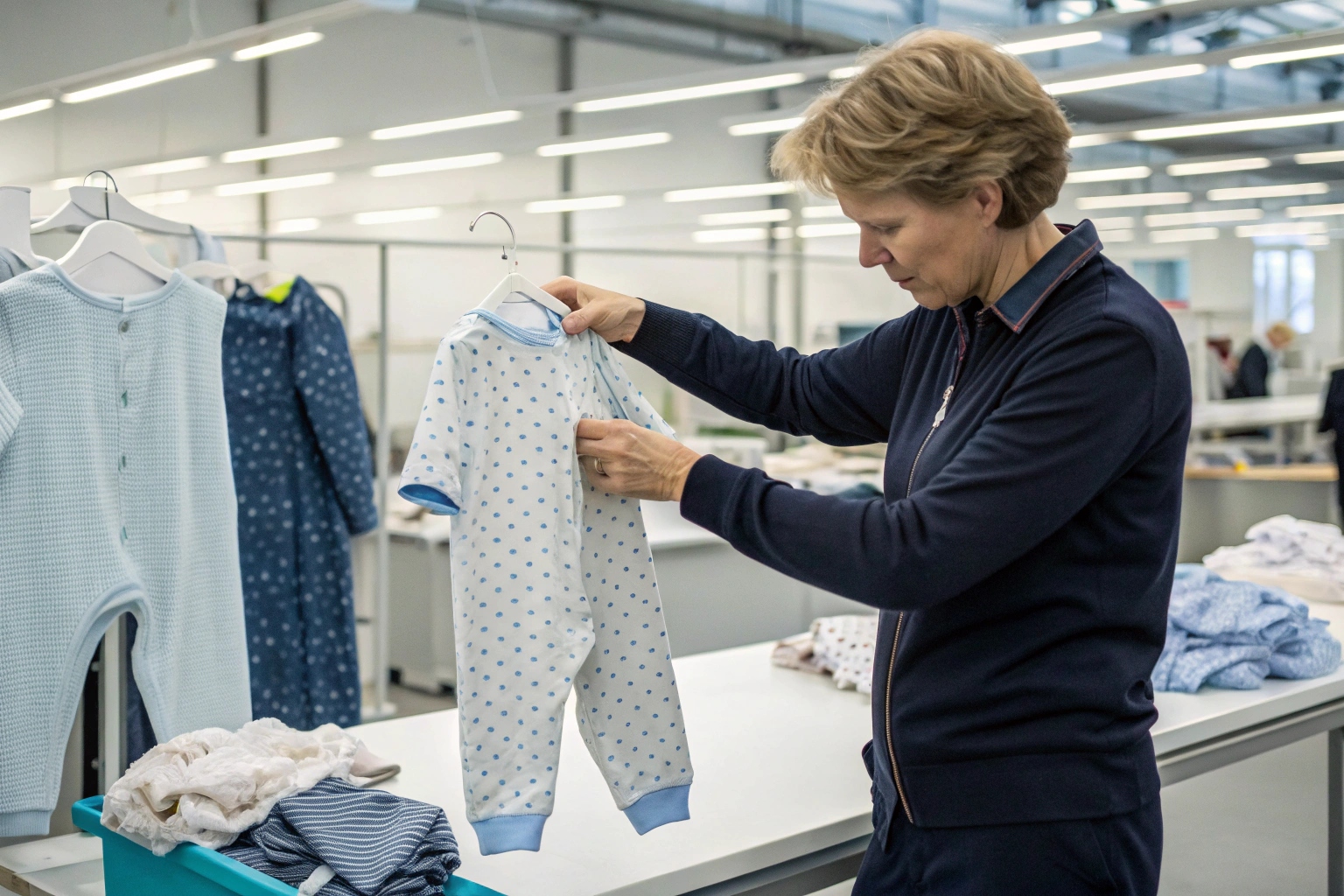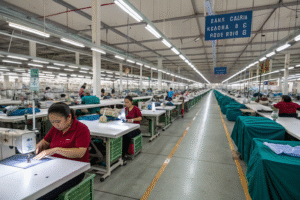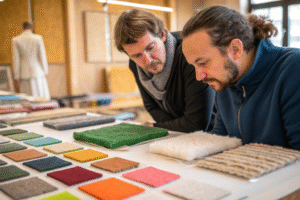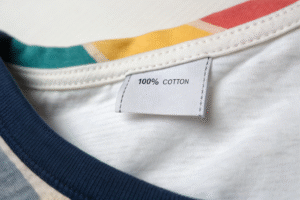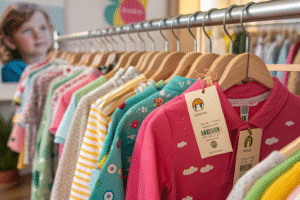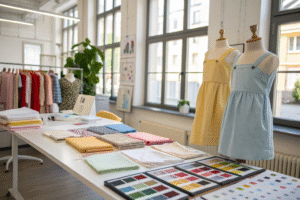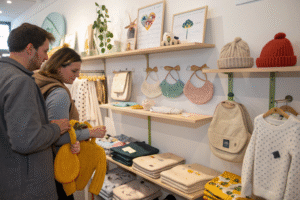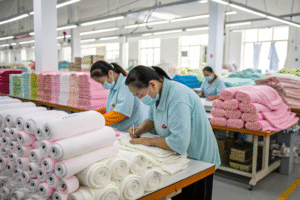Personalization isn’t just a trend—it’s the future. Babywear brands want unique styles, faster drops, and smaller runs. Can factories keep up?
Yes. Modern B2B factories now offer scalable customization, fast sampling, and low-MOQ production. This allows babywear brands to create personalized collections without slowing down or overcommitting.
Customization used to mean slow, expensive, and manual. But that’s changing fast. Let’s explore how B2B factories are driving the future of personalized babywear.
How B2B Manufacturers Enable Scalable Customization?
Small brands want exclusive prints. Large ones want personalization at scale. B2B factories today are doing both.
B2B babywear factories support scalable customization through digital printing, modular sewing lines, and flexible workflow systems. This enables brands to create unique items without high cost or delay.
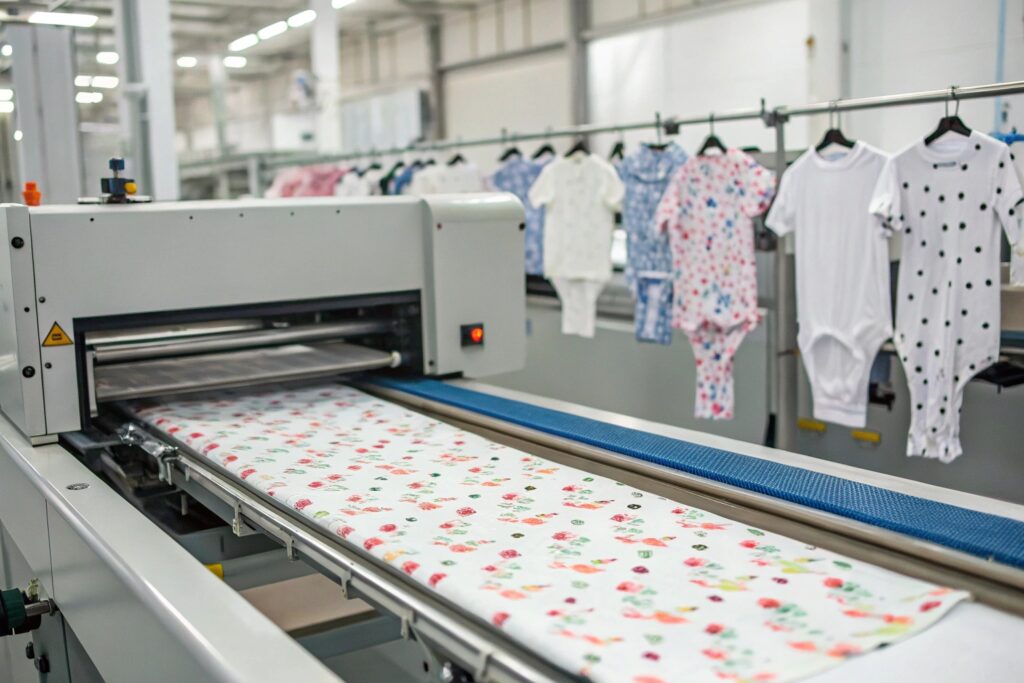
How do factories balance small-batch personalization with high-efficiency workflows?
It comes down to production architecture. Modern B2B factories break production into modular steps—so instead of one giant line sewing 5,000 pieces, they create flexible cells that handle small-batch variants. That means they can run:
- 3 colors of the same romper in parallel
- Different prints using one base fabric
- Name embroidery without pausing the main flow
Many also use digital textile printers, which skip the screen setup of traditional printing. This lowers the MOQ for custom patterns from 1,000 yards to as little as 50.
Here’s a sample scalable model:
| Customization Type | Minimum Qty | Production Time |
|---|---|---|
| All-over Print Design | 50 pcs | 7–10 days |
| Embroidery Name Patch | 200 pcs | 3–5 days |
| Color Variant Drop | 300 pcs | 1 week |
| Custom Packaging | 500 pcs | 10–14 days |
By batching similar processes and using smart software to track SKUs, factories reduce changeover time and keep output flowing.
What makes a factory truly “personalization ready” for babywear?
- Digital print capability (no screens needed)
- Quick-change sewing lines
- On-demand embroidery stations
- Flexible labeling and packaging zones
- Responsive merchandiser teams
If your factory isn’t set up for speed and variety, you’ll lose the personalization race.
Why Babywear Brands Need Flexible, Low-MOQ Production?
Not every brand wants—or can afford—10,000 units. Many need speed, variety, and small runs.
Babywear brands today rely on low-MOQ, flexible production to test new ideas, reduce risk, and meet niche market demand. B2B factories that support this are now key players in brand success.
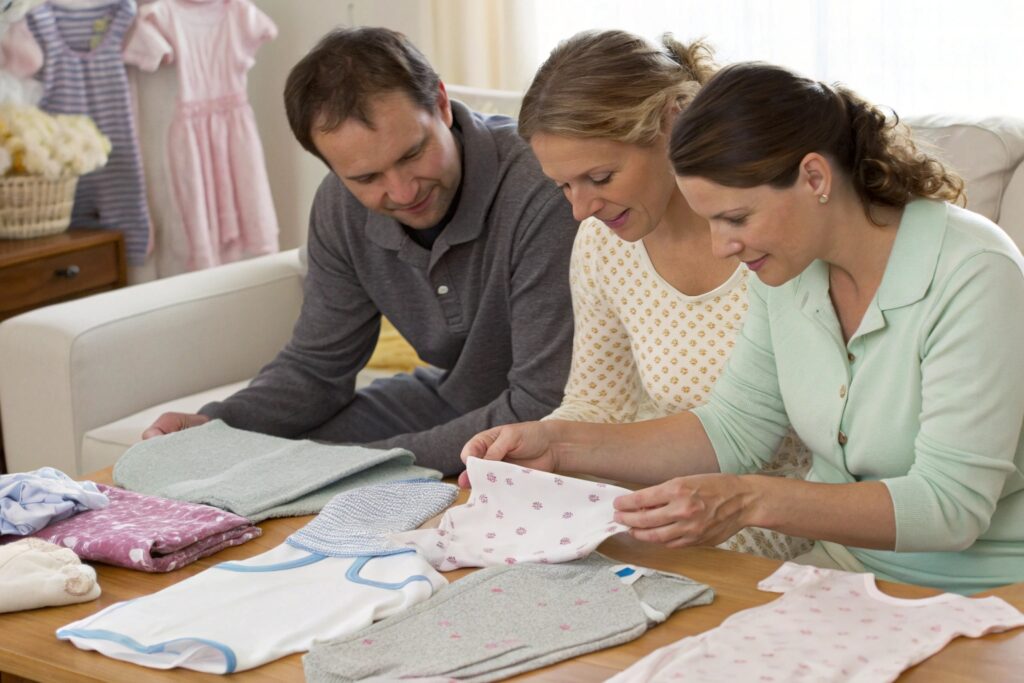
What pressures are forcing brands to move toward smaller, more frequent babywear drops?
- Trend turnover: Social media shifts styles quickly
- Customer personalization: Parents want babywear that feels special
- Inventory risk: High MOQ = high deadstock
- Testing new collections: Brands want to validate before scaling
A low-MOQ approach lets brands test 200–300 pieces per SKU. If it sells out, they reorder fast. If not, they pivot. This prevents markdowns and storage waste.
Here’s a typical production plan for modern babywear brands:
| Batch Type | Units | Use Case |
|---|---|---|
| Pilot Launch | 200–500 | Trend testing, influencer collabs |
| Seasonal Capsule | 800–1200 | Limited drop, retail partner |
| Core Reorder | 1500–3000 | Bestsellers restock |
How do B2B suppliers reduce risk for babywear brands launching new SKUs?
- Offer mix-and-match orders across styles
- Share fabric leftovers from larger clients
- Provide “ready style base” templates (brands only adjust colors or prints)
- Deliver faster samples (5–7 days instead of 3 weeks)
For lean brands, the right B2B partner makes all the difference.
What Technologies Support Mass Personalization in Factories?
Without the right tech, custom babywear remains slow and costly. But today’s factories use smart tools to make it fast and scalable.
Digital printing, automated cutting, embroidery software, and ERP systems help B2B factories support mass personalization at speed and scale.
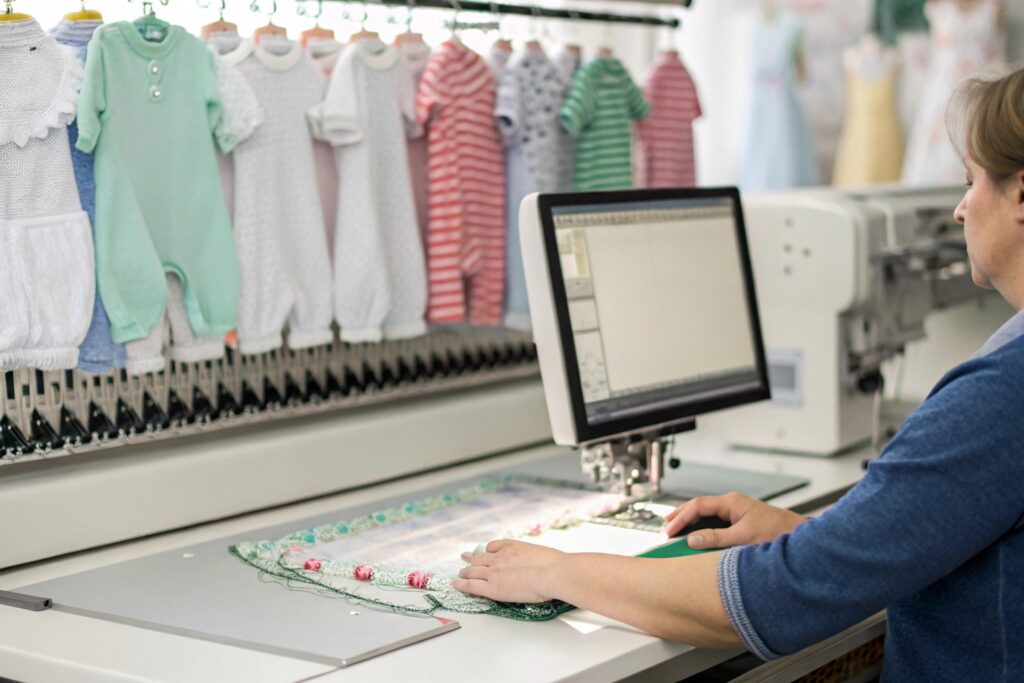
Which factory technologies are transforming how personalized babywear is produced?
| Technology | Function | Personalization Impact |
|---|---|---|
| Digital Textile Printing | Prints any design, no plates needed | 50–100 pcs possible |
| CAD Pattern Software | Adjusts sizes and fit instantly | Quick launch of new SKUs |
| Automated Cutting Table | Precise cuts, faster than manual | Better fit, less fabric waste |
| Embroidery Digitization | Converts names/art into thread paths | Name patching on demand |
| ERP + SKU Management | Tracks variants, manages orders | Customization at scale |
We’ve worked with babywear brands that launched personalized name tees with just 300 pieces—produced in less than two weeks using this setup.
How do tech-enabled B2B factories reduce launch-to-market time for personalized babywear?
- Eliminate screen or mold costs for prints
- Cut patterns directly from digital files
- Run embroidery from uploaded vector files
- Pre-program sizing or color sets into ERP
One client we supported used this tech to launch 3 mini-collections in a single month—each with different names, colors, and prints.
How B2B Partners Help Brands Launch Exclusive Babywear Lines?
Personalization isn’t just about names—it’s about uniqueness. That’s where exclusive lines come in.
B2B partners help babywear brands create exclusive collections through custom styling, private labeling, and fast capsule production runs.
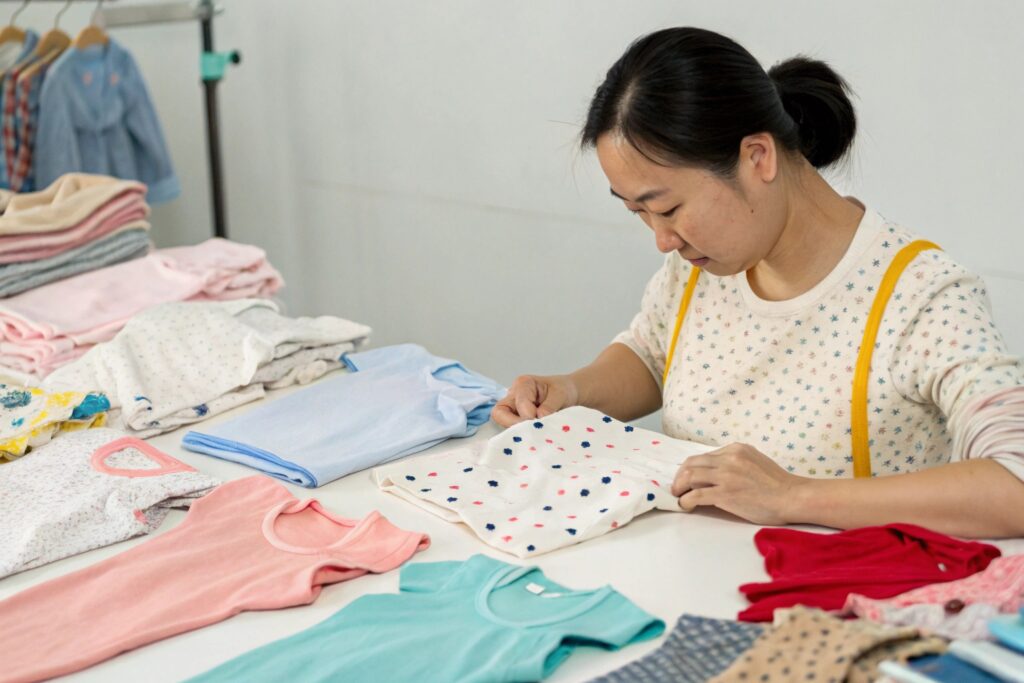
What do retailers and DTC brands look for in an “exclusive” babywear line?
- Unique prints or embroidery: Not found elsewhere
- Custom fit or trims: Signature cuffs, buttons, ruffles
- Branded labeling: Logos, wash tags, packaging
- Limited availability: Creates urgency and demand
Factories that offer these services in small runs are a goldmine for small brands and influencers.
Here’s an example of how a B2B supplier supports exclusivity:
| Service Provided | Benefit to Brand |
|---|---|
| Custom Print Development | Differentiates from mass market |
| Logo Labels & Tags | Boosts brand identity |
| Flexible Packing Options | Retail-ready delivery |
| On-Demand Sampling | Speeds up launch cycles |
How do exclusive product drops benefit both brands and factories?
For brands:
- Builds hype and loyalty
- Commands premium prices
- Feeds social media content
For factories:
- Long-term brand relationships
- Higher-margin production
- Lower bulk stock risk
We’ve seen influencer-driven babywear drops sell out in 24 hours—and it all started with a 300-piece exclusive run made by our factory.
Conclusion
B2B factories are no longer just bulk producers. They’re partners in creativity, agility, and brand growth. With tech, low MOQs, and flexible workflows, they’re shaping the future of personalized babywear.

